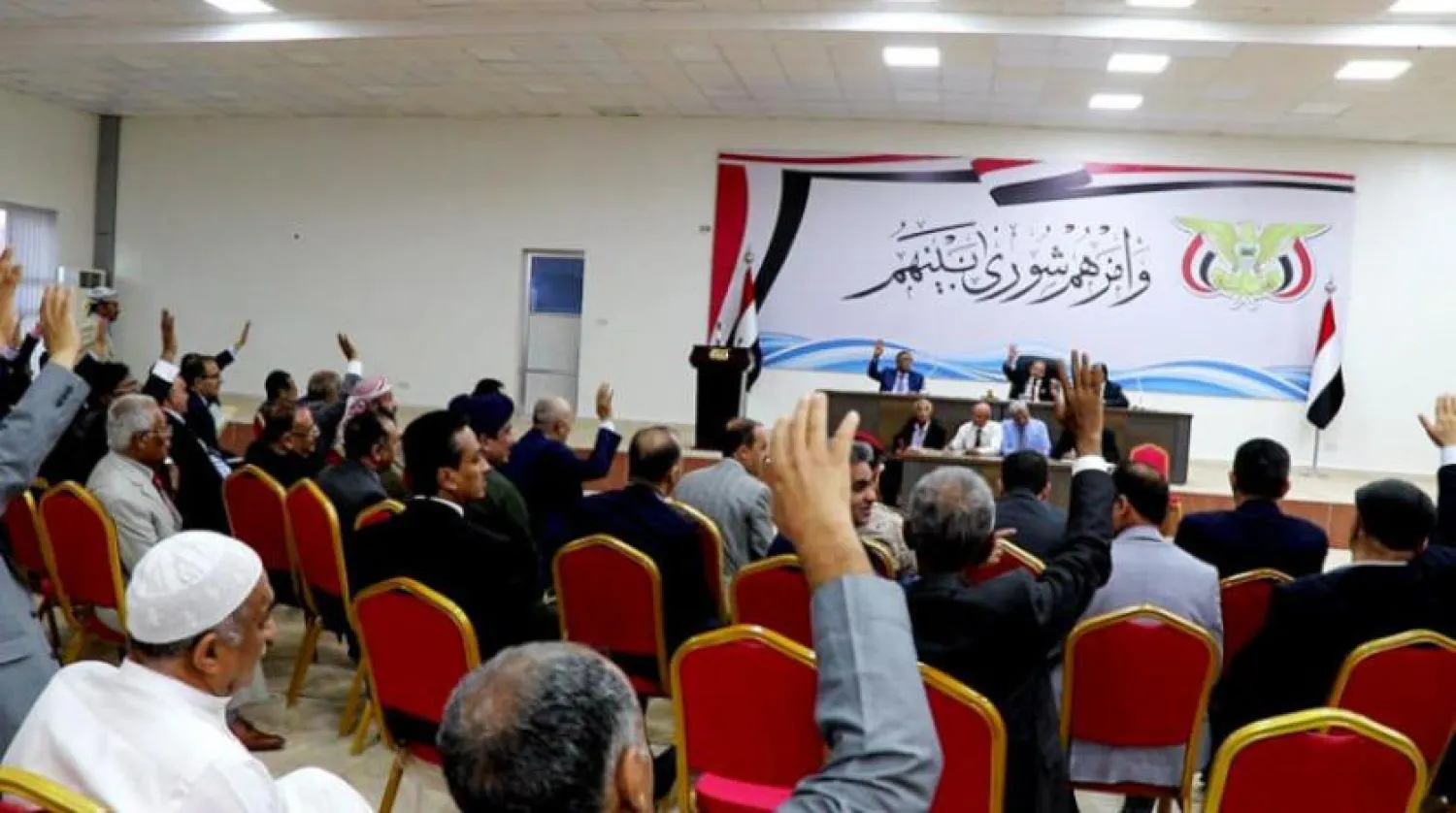Chairman of the new Yemeni Presidential Leadership Council (PLC), Rashad al-Alimi, underlined the importance of international pressure to make the Iran-backed Houthi militias commit to the two-month truce.
Alimi received a telephone call on Thursday from US Secretary of State Antony Blinken, who congratulated him on his new position. He welcomed the gathering in Aden this week of the Council, government, parliament, and Shura Council.
Blinken underscored the importance of an effective and transparent government that advances efforts to end the Yemeni conflict and protects human rights, said a State Department statement.
He "reaffirmed US support for the ongoing truce and the opportunity to provide relief to Yemenis by easing the movement of people and goods, including fuel. He further stressed the importance of opening roads to Taiz and other areas."
"The Secretary underscored the need to seize the momentum from these positive developments to secure a lasting ceasefire and a comprehensive peace process," added the statement.
Alimi and Blinken discussed bilateral relations and US support to Yemen and its new leadership, said official sources. They agreed to continue cooperation in the fight against terrorism.
Alimi hailed US support to the legitimate Yemeni government since 2014 and its backing of the transitional authority and Presidential Leadership Council. He stressed that the government is committed to the humanitarian truce in spite of the ongoing Houthi violations.
He hoped the international community would pressure the Houthis so that they would commit to the truce and open crossings leading to Taiz in order to lift the stifling siege on the city, in line with the United Nations ceasefire.
Meanwhile, Prime Minister Maeen Abdulmalik pledged that the government will implement the recommendations of the parliament and follow the political goals set by Alimi.
He added that the PLC and parliament's confidence in the government will motivate it to adjust to the changes brought about by the formation of the council.
The council, he remarked, will pave the way for a new phase of "work and achievements."
Parliament had on Thursday given its vote of confidence to Abdulmalik's new government. The parliament had met in the interim capital Aden for the first time since the Houthi coup.
The Presidential Leadership Council was sworn in at the same meeting.
On the ground, the Houthis have continued to violate the truce. The army confirmed 105 violations on Wednesday alone on various battlefronts in the Taiz, Hodeidah, Marib, Hajjah, al-Jawf and Dhale provinces.
It said 26 violations were detected in western Taiz and southern Hodeidah, 24 on the southern, western and southwestern fronts in Marib, 22 in western Hajjah, 18 in Taiz, eight in al-Jawf and seven in Dhale.
The army thwarted several Houthi infiltration attempts and the militias have continued to fire at military positions, to fly surveillance drones, amass forces and build fortifications at several fronts.
The army has confirmed over 2,000 Houthi violations since the truce was announced on April 2.









